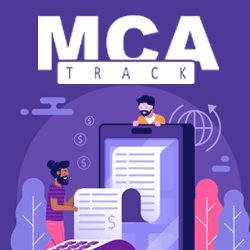Results 1 to 25 of 44
Hybrid View
-
10-24-2016, 02:49 PM #1Senior Member











 Reputation points: 17416
Reputation points: 17416
- Join Date
- Jul 2013
- Posts
- 352
Self Regulation
Two articles that highlight the self regulation that is occurring:
http://www.nytimes.com/2016/10/21/bu...e-iphone-share
This article describes a change that could have a dramatic effect in how government decides to approach advances / arch products.
http://www.wsj.com/articles/online-s...ces-1477299602
-
10-24-2016, 02:53 PM #2
You actually believe there is a large group of people in the industry that would self impose regulation and think big picture instead of how much money can I make this second this minute???? I wish you were correct but there is no way the majority of the industry would agree to anything unless it was imposed by the government
John Celifarco
Managing Partner
Horizon Funding Group
3423 Ave S
Brooklyn, NY 11234
T: (347) 773-3990 | F: (718) 795-1990
Linkedin: Profile
Email: john@horizonfundinggroup.com
-
10-24-2016, 04:14 PM #3
-
10-25-2016, 11:40 AM #4Senior Member











 Reputation points: 17416
Reputation points: 17416
- Join Date
- Jul 2013
- Posts
- 352
Far from it. I'm not as active as I once was on the board but I view most of the characters in this industry in the same light as you. I do think that a move like this was needed but I'm not sure cost was the right place to start. It gives a very definitive ceiling for regulators to start from. When I speak to merchants cost is one part of the discussion What they don't like is dealing with Tony the retired pizza delivery boy hitting them up every five minutes with a 1.45 over 3 months telling them they are a piece of ****.
-
10-25-2016, 12:18 PM #5
I agree also that is not the place to start. i personally think Barrier to entry is the biggest problem we have.. If it took a little work and knowledge to enter the industry you wouldn't have half the issues we do.. Right now anyone with 100 bucks to buy some UCC and a phone can call themselves an ISO and thats a problem.
John Celifarco
Managing Partner
Horizon Funding Group
3423 Ave S
Brooklyn, NY 11234
T: (347) 773-3990 | F: (718) 795-1990
Linkedin: Profile
Email: john@horizonfundinggroup.com
-
10-24-2016, 04:32 PM #6Senior Member











 Reputation points: 158630
Reputation points: 158630
- Join Date
- Jul 2015
- Posts
- 1,202
I'd expect the end market itself to absolutely demand standards as well over time.
-
10-24-2016, 04:56 PM #7
Unbelievable that some people are still begging for this government to impose regulations on their business.
-
10-25-2016, 11:21 AM #8
Its not begging for it, its realizing that it is definitely going to come and better to be involved and help to steer it so it does the least amount of damage. Sticking our heads in the sand and pretending nothing is going on isn't going to help anyone. The only way to survive long term is to be part of the solution
John Celifarco
Managing Partner
Horizon Funding Group
3423 Ave S
Brooklyn, NY 11234
T: (347) 773-3990 | F: (718) 795-1990
Linkedin: Profile
Email: john@horizonfundinggroup.com
-
10-24-2016, 05:19 PM #9Senior Member











 Reputation points: 16720
Reputation points: 16720
- Join Date
- Sep 2014
- Posts
- 430
Nationalizing regulation makes a lot of sense because right now it is a patchwork of state level licensure, registrations, legal arenas, and precedents that creates all manner of untoward incentives and inefficient markets. By imploring nationalization earlier than later, it imposes a level playing field to ensure the best ideas and products flourish, rather than allow the market to be captured by those with deepest pockets to pay lawyers to understand and navigate the various legal and regulatory state level frameworks. National regulation and/or licensure actually promotes innovation, competition, and fairness in a long term and sustainable fashion. It is going to happen inevitably, so why not participate and make sure it isn't onerous and creates a workable market for all participants? Regulators have already started sniffing around. They aren't just going to say "nothing to see here" and go back about their other business.
-
10-24-2016, 05:42 PM #10Senior Member











 Reputation points: 24139
Reputation points: 24139
- Join Date
- Apr 2014
- Location
- Washington DC
- Posts
- 421
In my opinion, the SMART Box is a big step forward in self regulation from a pricing perspective and does improve the ability of merchants to compare cost of capital across products (and properly understand costs). As you can see in the press release, we endorsed it and will adopt it. Question is, who else will?
But regulation is coming, and I agree with CreditGuy, state by state is already a mess and currently costs hundreds of thousands of dollars just to lend properly -- well-structured Federal regulation will be a "good" thing for the space (even if it's initially "opt-in" regulation) -- we ALL have the opportunity now to help structure informed Federal regulation; fighting the inevitable is a losing battle and will only hurt us when it does come into place.Carl Fairbank
Founder & CEO boldMODE
www.boldmode.com
Carl@boldmode.com
Founder & former CEO of Breakout Capital (sold to SecurCapital in 2019)
www.breakoutfinance.com
-
10-24-2016, 06:32 PM #11Karen37aGuest
Carl I just won a bet about your "smart box". You said it quicker than I thought though. ( I said you would be advocating for it, because its in the best practices, that i read)
While your smart box might be a great idea for you, I am not sure if you are realizing the brokers job is to broker out a deal or BE the smart box.
And getting money isnt about price and price alone.
Why would anyone want to participate in it? Kind of like a Funders cld on steroids?
You cant take the salesperson out of the equation and automate the system . And who is in charge of this box? Why do we trust them with our deals?
Salespeople bring sales and money to the table and their is a reward/cost associated with doing so. Freedom of choice for the one who is the true driver of applications and the ability to control our destiny and not devalue the relationship building side of the sales process.This is why some of us are self employed.
I could discuss this with you further, not on a board because I am making these conclusions based on a split second clue I got from a debate that was posted...you mentioning it now makes me realize what I was thinking was correct.
Again Id be open to discuss what your goal is..not on these boards though.
-
10-24-2016, 06:49 PM #12Senior Member











 Reputation points: 24139
Reputation points: 24139
- Join Date
- Apr 2014
- Location
- Washington DC
- Posts
- 421
Each lender that adopts the SMART Box internally generates the SMART Box for each deal. Navigant signs off on the calculations, but there is no outside firm that generates each SMART Box for the lender on a deal by deal basis or sees any customer information. What is the concern? All it is doing is creating uniform disclosure for pricing and terms. The broker can still sell the deal as they normally would, there isn't any infringement on the customer relationship.
Carl Fairbank
Founder & CEO boldMODE
www.boldmode.com
Carl@boldmode.com
Founder & former CEO of Breakout Capital (sold to SecurCapital in 2019)
www.breakoutfinance.com
-
10-24-2016, 06:37 PM #13Karen37aGuest
There could be a "smart box calculator " that data could be entered into, not names or phone numbers for best pricing, like a jr underwriting engine
-
10-24-2016, 06:56 PM #14Karen37aGuest
I said "not on these boards" because I didn't want to get into a whole conversation about this, creating an advertisement pro and con for the smart box.
I will look at this down the road a bit because as I stated I really do not have an solid opinion of it yetLast edited by Karen37a; 10-24-2016 at 07:03 PM.
-
10-24-2016, 07:10 PM #15
I see that there is a MCA SMART Box as one of three boxes. But as far as I can tell, no companies have actually agreed to adopt these boxes for an MCA except for CAN Capital and you, Carl. Seems it's basically just CAN doing this all by themselves. Why do you think that is?
APRs on loan contracts is a completely different topic altogether.
-
10-24-2016, 07:34 PM #16Senior Member











 Reputation points: 24139
Reputation points: 24139
- Join Date
- Apr 2014
- Location
- Washington DC
- Posts
- 421
Carl Fairbank
Founder & CEO boldMODE
www.boldmode.com
Carl@boldmode.com
Founder & former CEO of Breakout Capital (sold to SecurCapital in 2019)
www.breakoutfinance.com
-
10-24-2016, 09:20 PM #17Senior Member











 Reputation points: 3087
Reputation points: 3087
- Join Date
- Apr 2013
- Posts
- 117
This makes me laugh as I have funded 1000s of MCAs and designed MPL structures with orignating banks and institutional investors. "Upmarket".........MCAs can and do often do have lower all in rates for the merchant. An attempt to take some type of moral highground is simply hubris.
-
10-24-2016, 07:40 PM #18Senior Member











 Reputation points: 24139
Reputation points: 24139
- Join Date
- Apr 2014
- Location
- Washington DC
- Posts
- 421
But to be clear, SMART Box is not about APR. It's about presenting uniform cost and terminology disclosure, one of which is APR. Putting APR aside, you have so many different ways firms present cost today, hopefully this will help fix that, even for those that choose not to adopt it (I personally think anything that is presented as a rate or % that isn't annualized is confusing, even factor rate -- hence the "cents on the dollar").
Carl Fairbank
Founder & CEO boldMODE
www.boldmode.com
Carl@boldmode.com
Founder & former CEO of Breakout Capital (sold to SecurCapital in 2019)
www.breakoutfinance.com
-
10-25-2016, 08:09 AM #19Senior Member











 Reputation points: 16720
Reputation points: 16720
- Join Date
- Sep 2014
- Posts
- 430
ILPA created the SMART Box. CAN is a member, but so are Kabbage and On Deck. Between the three of them, they make up a very large majority of dollars and units funded in this industry. That's a significant network effect and signal to borrower. If a broker presents two deals: one from CAN and another deal from ABC Capital, and the CAN one has the SMART box clearly showing cost of funds and total payback and the other is just a contract and they have to hunt for the terms, which are they going to feel more comfortable with? How long until a borrower says, "Your contract doesn't have a SMART Box so I can easily compare terms." ILPA is hoping that is a day that comes soon.
Breakout Capital is not a member of ILPA and doesn't use SMART Box, FYI.
-
10-25-2016, 08:51 AM #20Senior Member











 Reputation points: 24139
Reputation points: 24139
- Join Date
- Apr 2014
- Location
- Washington DC
- Posts
- 421
That is correct. We are not a member of ILPA; we are a member of the CRBF. Breakout, along with a several other companies and small business organizations, have provided endorsements for or stated support of the SMART Box (you can see many of the supporters of the SMART Box listed with quotes on the ILPA website or the OnDeck press release) and plan to adopt it when it is released past ILPA companies.
Carl Fairbank
Founder & CEO boldMODE
www.boldmode.com
Carl@boldmode.com
Founder & former CEO of Breakout Capital (sold to SecurCapital in 2019)
www.breakoutfinance.com
-
10-25-2016, 09:20 AM #21Karen37aGuest
Credit Guy,
I am not sure if you do credit but you do know that credit reports can vary 30-50 points depending on what version of software you are using within the same Credit Reporting Agency?
One lender can have one score, another a lower or higher score, even though its the same Credit Bureau on the same day? That could also affect the calculation.
I know one big lender using old software, I do not know if they know they are using it (blindly) or purposely using it to generate the lower score .
Everyone would have to use the same exact version of credit scoring software to get a TRUE apples to apple comparison. I guess the big credit reporting agencies will have to do something to stop the discrepancy in the scores . Lets Regulate them too !!!
. ( I am kidding about the regulation on them, I do not need to pick a fight with Giant companies and every single person/company who lends money in the world,and the credit bureaus .... If I was being harassed id duck behind them)
Kind of like the green wall of silienceLast edited by Karen37a; 10-25-2016 at 09:33 AM.
-
10-25-2016, 10:41 AM #22Senior Member











 Reputation points: 16720
Reputation points: 16720
- Join Date
- Sep 2014
- Posts
- 430
Yes, I "do" credit and am aware there are various versions of a credit score provided by one bureau. Let me give you a brief lesson in credit bureaus, credit scoring, and model development.
To start, the software you are using has nothing to do with the score you get back. Because credit bureaus deal in PII, they have to know who is requesting the data and for what purpose they will be using the data. This classification is the first segmentation of users. What credit data from the bureau is exposed to a user is a function of who they are and for what they will be using it. An insurance company, landlord, and bank all get exposed to different levels of data in terms of details and records. Within a bank, the bank might get different scores based on the product for which you are applying. Once the bureau has segmented you out, they can determine which score version you get as a function of the data to which you are exposed. A landlord might not get a score at all, but get any public records or collections items that are open against their prospective tenant. A bank on the other hand gets everything and the latest and greatest score (FICO 8, usually). (If they want it. More on this in a second.)
Even within this space, a "lender" running a two man money shop on Long Island isn't going to get the same score version that a big lender like Kabbage is getting since the bureaus are going to treat the small shop more like a consumer or landlord and give them less and/or less granular data, a less granular score, etc.. The saying "you get what you pay for" holds for credit bureaus. If you only want to sign up online and pay $2 a pull, you are going to get the $2 quality credit bureau. If you go through a more stringent vetting process and pay more, you are going to have access to more robust data and be able to pick the score version most suitable to your line of business. Also, I would note here that within each bureau there are specialized score versions for large consumer segments like cards (Bankcard FICO), mortgage (Beacon 5.0) and auto (Auto FICO). Depending on which score version and level of data you want, you will pay different costs per inquiry. Mortgage uses the oldest model, for reasons we will talk about now. FICO 9 was just released, but nobody really uses it yet because it is too new.
Credit scoring. In lending, the purpose of scoring credit is to build a logit that expresses probability of default/likelihood to repay and then bound your credit policy/risk appetite to a subset within that range to create a favorable ROI across your portfolio of loans. Since we are are talking about FICO/consumer credit, let's stick with that. FICO ranges from 300-850 with lower values indicating a higher likelihood of default. For most of the lenders in our industry, 500 is the absolute floor picked arbitrarily and/or because everyone else is doing it. This is because by and large, borrowers with sub-500 FICOs more often than not default (pD>.50). So, how did the first person figure this out? Effective model development.
When modeling credit risk you want to prove that 500 FICO has a certain default rate and/or is an inflection point. In order to do that, you have to generate observations/loans and see how they perform over multiple vintages. The life cycle is: 1) pick a variable (or variables) you think are going to predict default, 2) make loans with that/those assumption(s), 3) compare actual performance to your score predictions/defaults in the real world. Rinse and repeat ad infinitum. When you are building models this way, you want to try to use the same data sources as inputs for purposes of model integrity. I'm guessing this is why the one big lender you mention is using an old version of the score. Their model was either copied from another industry/model that used the old score version, or they chose X score version when they started building their model from scratch and rather than rebuild or recalibrate the model every time a new version of the score they are using comes out they just use the legacy score. Chances are though that anyone that is being classified as a "big lender" has folks that know exactly why and what they are doing using the older score. This is also why the mortgage industry uses an old version (Beacon 5.0) of FICO. Their models are more complex, require more observations to build samples sets, and are harder to roll forward to a new version of FICO score, which provides many very highly weighted variables in their scoring models.
If you really want to make the argumentum ad absurdum that any variation in inputs used by lenders negates any attempts at standardization of outputs to consumers, that is you prerogative, but I would warn all those reading this that she hasn't the foggiest clue about credit scoring, setting baselines, regulating an industry at scale, and what appears to many other fundamentals about how this business of credit risk management really works."Nobody can make you feel inferior without your consent." -Eleanor Roosevelt
-
11-30-2016, 08:50 AM #23Senior Member











 Reputation points: 2496
Reputation points: 2496
- Join Date
- Nov 2014
- Location
- NYC
- Posts
- 187
-
10-25-2016, 12:50 PM #24Senior Member











 Reputation points: 50583
Reputation points: 50583
- Join Date
- Jul 2014
- Location
- Online
- Posts
- 965
When it comes to the Borrower/customer/client - the feature SMART Box includes (or any other movement)can make the difference. Take your head away from Wall Street for a second and think Main Street- Think like a person who has been subjected to mainstream ways of research and obtaining something. Whether it is a product (material) or a financial product, there are visual and simple features that give a customer the feeling of security in their decisions- something many direct and in-direct companies CANNOT give.
Regulation is not only disclosing information- it is providing a unified process. A unified process is something that is not likely to happen, thus the multiple groups trying to align this industry whether it's for self regulation or not. It goes without saying the the low barrier of entry along with the high level of enabling is one of the biggest reasons of why nothing will be done without a "boom". It will likely cater to the deeper pockets and banks because that's how 'Murica works.Amanda Kingsley
DailyFunder: WhoisKingsley
This is me. https://www.facebook.com/whoiskingsley
I am Here too. https://www.facebook.com/groups/TheClosersGroup
Always Live and Lead with Integrity.
-
10-24-2016, 07:37 PM #25
So raw dollar wise, how much are you doing in MCA funding per month on average?
Similar Threads
-
Regulation in Illinois?
By isaacdstern in forum Merchant Cash AdvanceReplies: 136Last Post: 06-13-2016, 11:14 AM -
Regulation is here
By FUNd in forum Merchant Cash AdvanceReplies: 84Last Post: 01-08-2016, 04:36 PM -
ECOA and Regulation B
By Sean Cash in forum Business LoansReplies: 10Last Post: 01-26-2015, 04:16 PM -
Regulation and IPO's
By fundgorilla in forum Merchant Cash AdvanceReplies: 2Last Post: 12-18-2014, 02:48 PM -
Regulation Post I Came Across
By 1StopFunding in forum Merchant Cash AdvanceReplies: 16Last Post: 06-19-2014, 01:57 AM


 Reply With Quote
Reply With Quote



















